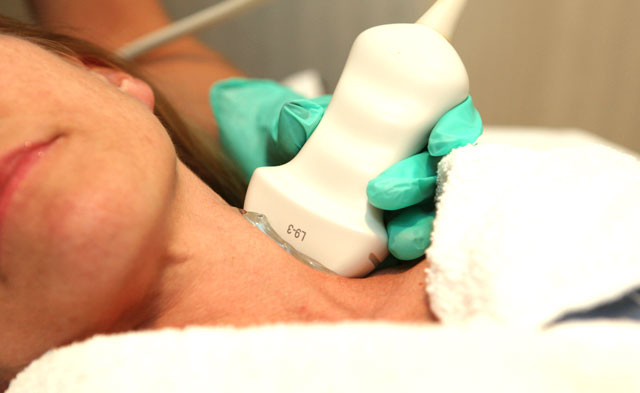Seven Ways to Stay Young at Heart

Answer a few questions and we'll provide you with a list of primary care providers that best fit your needs.
How old is your heart? It may be older than you think.
Your “heart age” is the age of your heart and blood vessels, influenced by aging, heredity and lifestyle choices. If your heart age is greater than your actual age, it puts you at higher risk for heart attack and stroke.
Forty percent of American women have a heart age at least five years older than their actual age.
Lower Your Heart Age
You can’t change heart disease risk factors such as aging or family history, but there are seven important ways you can help your heart and blood vessels be healthy and strong:
- Reduce high blood pressure. Achieve an ideal blood pressure (less than 120/80) to reduce your heart’s workload and lower your heart age. If you blood pressure is high, start by lowering sodium intake, losing excess weight and exercising.
- Lower your cholesterol level. Cholesterol in the blood causes a buildup of fatty substances in your arteries. The narrowing of arteries can lead to heart attack or stroke. Aim for a total cholesterol less than 200 mg/dL (milligrams per deciliter of blood) and LDL cholesterol (bad cholesterol) less than 100 mg/dL.
- Don’t smoke. Cigarette smoking raises your blood pressure and increases your risk of heart attack and stroke. If you already smoke, get help to quit. Avoid second-hand smoke.
- Maintain a healthy weight. Calculate your body mass index (BMI) to determine if you are overweight or obese. To lose one to two pounds per week, cut your intake of fats and carbohydrates, and reduce calorie intake by 500 to 1,000 calories per day. Exercise at least 150 minutes per week.
- Eat a healthy diet. Include plenty of fruits and vegetables and avoid foods high in trans fats and sodium (salt).
- Be physically active. Experts recommend at least 150 minutes per week of moderate aerobic exercise, such as brisk walking or bicycling.
- Prevent lifestyle-related diabetes. The higher your BMI, the higher your risk for heart disease and type 2 diabetes. If you are overweight and most of your fat is at your waist rather than your hips, strongly consider losing weight to reduce your risk of getting type 2 diabetes. If you already have diabetes, work with your doctor to manage your blood sugar levels.
Make Gradual, Lasting Changes
You don’t have to make the changes all at once. Pick one or two and work on those. Ask your doctor for suggestions and guidance. And remember that it’s never too late to be young at heart.
Answer a few questions and we'll provide you with a list of primary care providers that best fit your needs.
Source: Centers for Disease Control; National Heart, Blood, and Lung Institute




